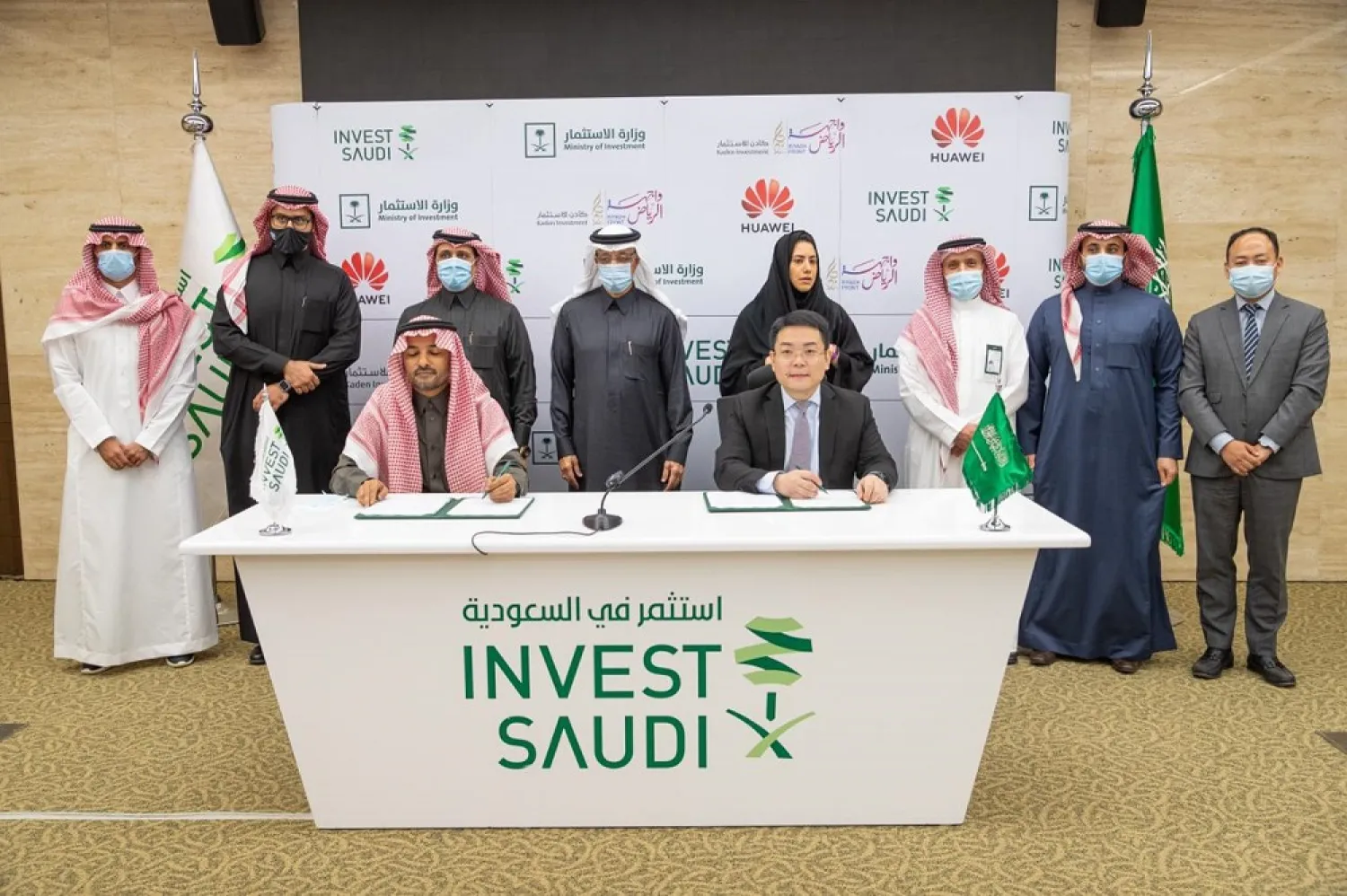The Ministry of Investment of Saudi Arabia (MISA) announced that Huawei signed a contract with Saudi Arabia’s Kaden Investment to establish a flagship store in Riyadh, the largest such store outside China.
On its Twitter page, the ministry said: “The agreement, facilitated by #MISA, is the latest addition in our long-lasting business relationship with Huawei that dates back to 2002, since Huawei realized the potential of our growing telecommunications sector.”
Saudi Minister of Investment Khalid al-Falih tweeted: “These achievements are the result of the continuous collaboration between the Ministry of Investment and the Ministry of Communications and Information Technology to attract, enable, and support ICT Investments.”
The communication and information technology sector in the Kingdom has witnessed considerable prosperity as the government prioritizes digitization of services and sectors and the transformation to a paperless community.
The Kingdom has doubled the public and private sectors' investment in the infrastructure of communication and IT, exceeding USD15 billion in the past years. This contributed to the availability of mobile telecommunication services by 131.1 percent among residents.
The Internet usage rate reached 95.7 percent by the end of 2019, according to the latest official statistics. Saudi Arabia has connected 3.5 million households to ultra-fast Fiber-to-the-Home (FTTH) broadband networks.
Saudi Arabia’s Communications and Information Technology Commission (CITC) had previously signed three memorandums of understanding (MoUs) with global telecommunications firms Ericsson, Nokia, and Huawei.
The MoUs would support and strengthen the commission’s objectives of enabling the Kingdom’s digital transformation. They also include holding training courses for CITC’s employees.
In November, Saudi Arabia launched an initiative to found the Digital Cooperation Organization (DCO) aimed at strengthening cooperation and accelerating the development of the digital economy.









